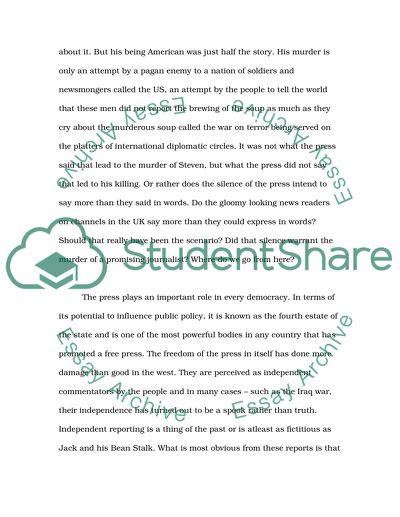Cite this document
(“Dominant Ideology in British News Broadcasting Essay”, n.d.)
Retrieved de https://studentshare.org/politics/1520862-british-news-broadcasting
Retrieved de https://studentshare.org/politics/1520862-british-news-broadcasting
(Dominant Ideology in British News Broadcasting Essay)
https://studentshare.org/politics/1520862-british-news-broadcasting.
https://studentshare.org/politics/1520862-british-news-broadcasting.
“Dominant Ideology in British News Broadcasting Essay”, n.d. https://studentshare.org/politics/1520862-british-news-broadcasting.


